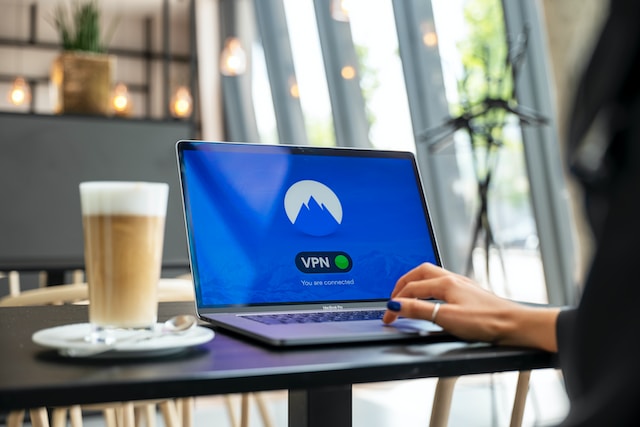- Change theme
Practical Tips for Using VPNs in China

China's internet censorship and restrictions make using a VPN almost essential for foreigners visiting or living in China.
14:53 01 December 2023
China's internet censorship and restrictions make using a VPN almost essential for foreigners visiting or living in China. Connecting through an encrypted VPN allows you to access blocked sites and apps as well as avoid throttled speeds. However, the Great Firewall has cracked down hard on VPN usage recently. You’ll want an understanding of the latest laws, risks, and solutions to safely browse freely.
Certainly! Here's the revised section that focuses on why VPNs are needed in China, replacing the previous "Legality of VPNs in China" section.
Necessity of VPNs in China
The need for VPNs in China is primarily driven by the country's stringent internet censorship policies, which restrict access to various international websites and services.
- Overcoming Censorship: Known as the "Great Firewall of China," this system blocks access to numerous websites, including popular social media platforms like Facebook, Twitter, and Instagram, as well as many news outlets like the New York Times and the Wall Street Journal.
- Secure Communication: For businesses, especially international companies, VPNs are vital for secure data transmission and communication between China and the rest of the world.
- Accessing Restricted Content: VPNs allow both residents and visitors in China to access globally available content and services, which are otherwise blocked within the country.
- Personal Privacy: VPNs offer a degree of privacy and security, helping protect users' personal information from surveillance and data collection practices prevalent in China.
VPNs in China serve as a critical tool for bypassing internet restrictions, ensuring secure communication, and accessing a broader spectrum of global information and services. This makes them an indispensable asset for both individuals and businesses operating within the country.
Choosing the Best VPNs for China Access
The first step is finding a VPN that can reliably bypass China's blocks. Not every VPN works well there, as the Great Firewall actively scans for VPN traffic. As a result, VPN users in China have to constantly searching for working VPNs and online searching for VPN推荐 (VPN recommendation in Chinese) has always been popular. When testing VPNs, check that they:
- Offer obfuscated servers or protocols like Cloak or Obfsecurity to hide VPN activity
- Have sufficient server locations inside or near China for best speeds
- Consistently work in China, even during politically sensitive periods
- Offer helpful customer support in case your connection drops
Providers like ExpressVPN, NordVPN, VyprVPN, Astrill, and StrongVPN are some of the best VPNs for China. They have proven track records in China. Read reviews of a VPN’s success in China before subscribing.
Using Safe Payment Options
You’ll want to avoid having your VPN payment method connected directly to you in case authorities check. Use anonymous payment options like:
- Bitcoin or other cryptocurrencies: Fully anonymous digital payments
- Gift cards: For instance, you can buy ExpressVPN via gift card
- Third party payment sites: For example, Privacy.com generates secure, disposable card numbers
Never pay for your VPN using a payment method explicitly in your name. That links your real identity to VPN activity.
Securing Your Internet Traffic
You’ll also want to route all traffic through your VPN connection automatically using these steps:
Configuring Your Operating System
Most VPNs provide instructions on securing your entire OS traffic, like:
- Windows: Change TCP/IP settings to relay through VPN
- MacOS: Tunnel all traffic through VPN in System Preferences
- iOS/Android: Enable “VPN always on” mode
Be sure to set your VPN as the default gateway at the system level.
Using a VPN Router
If configuring each device seems too complex, use a travel VPN router preconfigured for VPN tunneling. Connecting through that router will protect all your WiFi traffic.
Securing Apps
In addition to system settings, check for VPN integration features inside frequently used apps like Chrome, Firefox, Skype, etc. Enable them to add another layer of VPN protection.
Avoiding VPN Detection
China actively tries to block VPNs, especially during sensitive political events. Follow these tips to further obfuscate your traffic:
- Change servers frequently: Switch VPN entry node locations often
- Mask VPN traffic: Use obfuscation protocols like Cloak by ExpressVPN
- Use TCP ports: OpenVPN connection over TCP 443 can mimic HTTPS traffic
- Connect from hotels: Commercial networks are less strictly monitored
Stay vigilant and be prepared to troubleshoot if your VPN stops working during your stay.
Understanding the Legal Situation
China has no explicit laws against using a VPN, but does penalize providing unauthorized VPN services. As a VPN user, you're exceedingly unlikely to face trouble. If authorities do question you, truthfully state you use one to access services abroad. Still, be prudent about where and when you connect to minimize any issues.
Laws and enforcement in China remain vague regarding VPN usage. But following these tips will help you reliably and safely access the open internet. With a top VPN for China setup using secure connections and protocols, you can confidently unblock sites and avoid throttled speeds.
Conclusion
Using the internet freely in China means finding workarounds to bypass censorship and restrictions. Configuring your devices and traffic to relay through a high-quality VPN designed specifically to access China provides that vital tunnel out to the open global internet. Following the tips outlined here will help you setup a secure, reliable connection on your devices while in the country.
With an optimized VPN, encrypted protocols, and secured apps, you can confidently unblock sites and services to browse the internet freely. Stay informed on the latest laws and enforcement policies that may impact VPN usage as well. Though rare, foreigners have very occasionally faced questioning or Temporary VPN service disruptions. Despite the minimal risks, using common sense connectivity precautions will ensure you can access the open internet abroad just as you would at home.
